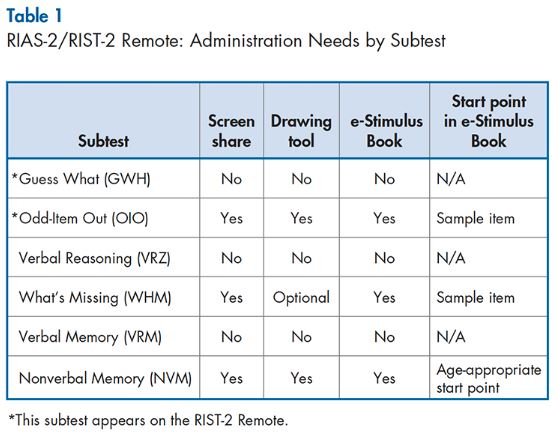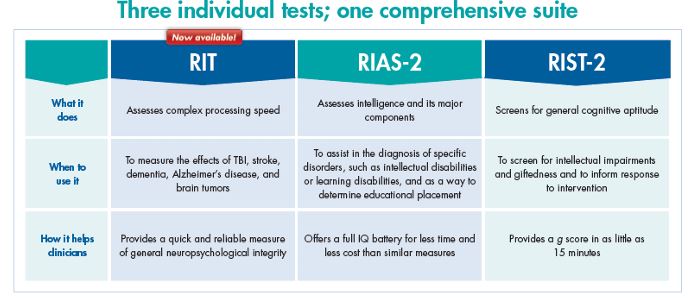Register now and start:
- Accessing PAR Training
- Shopping PAR products & tools
- Using online assessments with PARiConnect
The RIST-2 is ideal for identifying individuals who may need a more comprehensive assessment of intelligence in a variety of settings. This general cognitive aptitude screener can also be useful in clinical and school practice when a global estimate of intelligence is all that is needed.
PAR developed the RIST-2 Remote to support your need for flexibility. The RIST-2 components have been minimally modified and packaged digitally, and step-by-step videoconferencing instructions are included to allow you to continue to screen for general intelligence in remote settings. An equivalency study (Wright, 2018*) between the RIST-2 paper-and-pencil format and digital version produced positive results. One downloadable digital stimulus book is shared via videoconferencing with your client. An included white paper describes detailed administration procedures for the RIAS-2 and RIST-2. Be sure to download the white paper prior to administering.

*Wright, A. J. (2018). Equivalence of remote, online administration and traditional, face-to-face administration of the Reynolds Intellectual Assessment Scales, Second Edition [white paper]. PAR. https://www.parinc.com/Products/Pkey/365
Derived from the updated RIAS-2 subtests, the RIST-2 retains the same two subtests as the original RIST: Guess What and Odd-Item Out. Guess What, a verbal subtest, which is a traditional measure of crystallized intelligence; and Odd-Item Out, a nonverbal subtest, which focuses on fluid intelligence.
Practitioners might use the RIST-2 in a public health clinic, pediatric practice, preschool or prekindergarten screening program (Reynolds, 1979), managed care organization, veterans’ hospital, or other setting to assess the risk for functional intellectual impairment. The following are some specific examples of such situations:
